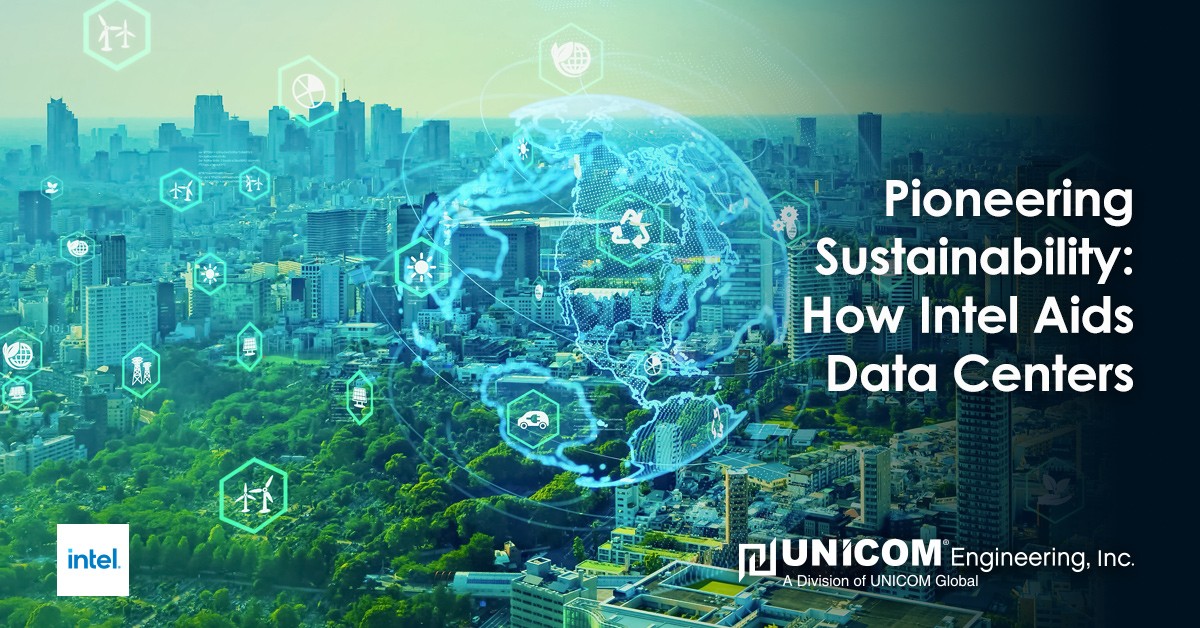Organizations today are beginning to see climate change as both a global threat and a risk to profitability. Governments worldwide have proposed and enacted legislation requiring companies to track, report, and improve their emissions to address the issue, which puts pressure on data centers and their customers.
Data Centers and Power Consumption
According to Intel, data centers consumed approximately 1% of all the electricity used in 2021. While companies have moved some processing to the cloud, the world's overall computing demand continues to rise. Additionally, according to proposed SEC reporting rules, companies won't be able to free themselves of emissions concerns by outsourcing.
Proposed SEC Emissions Reporting Rules
Globally, climate change is prompting governing bodies to take action. As a result, the US, China, and the EU are enacting new reporting standards. In the US, the SEC has proposed new rules requiring organizations to measure and improve sustainability.
In a March 2022 statement, the SEC suggested that public corporations and other large organizations disclose the risks that climate change presents to their business and, in addition, report their greenhouse gas emissions. The latter would require a detailed analysis of three emissions categories:
- Scope 1 - which includes direct greenhouse gas emissions
- Scope 2 - emissions resulting from the purchased electricity or other energy
- Scope 3 - emissions resulting from upstream or downstream in an organization's supply chain
As of this writing, the above rules have yet to be adopted into law and have been controversial, especially regarding Scope 3 emissions. Detractors feel the SEC is overstepping its mandate, and proponents believe the rules are necessary to understand a firm's accurate emissions picture and affect change. Many organizations have taken the proposed rules seriously and set aggressive emissions goals.
Intel Corporate Sustainability
At Intel, supporting sustainability starts with manufacturing their products through renewable energy or water stewardship initiatives. For example, 4th Gen Intel Xeon Scalable processors are manufactured with 93-100% renewable electricity. Therefore, organizations tracking scope three emissions can rest assured that working with Intel won't hurt their overall carbon footprint.
Additionally, chip fabrication requires many gallons of water. In 2022, through watershed projects and water returned from its sites, Intel produced more fresh water than it used.
Intel - Facilitating Sustainability
From there, Intel takes care to consider the sustainability impacts of its chip design and use. Although Intel makes no direct claims of sustainability benefits, its ability to facilitate the drive to data center and application sustainability is undeniable thanks to initiatives such as:
Chip Design
It's no secret that more processing necessitates more energy. That is unless the design of the chips themselves can change. The 4th Gen Intel Xeon Scalable processor generation offers built-in acceleration technologies. For example, Intel Deep Learning Boost speeds up AI workloads without requiring greater wattage. Intel has also taken the step to include built-in telemetry in their chips, which integrates with their Data Center Manager software to enable users to measure and manage their power usage and emissions.
Other Software Tools
With their Granulate software, cloud-based applications can be optimized for power and core count usage, while Power Manager and Telemetry Aware Software integrate carbon awareness at the software level.
Liquid Cooling
Thanks to continual growth in processing demand, today's data centers are forced to look beyond traditional air-cooling methods to liquid cooling. High-performing chips get hot, and the larger the workloads, the greater the challenge. Intel actively works with various liquid cooling integrators and has helped create reference documents to facilitate deployment. They are so confident in Xeon Scalable processors that they pioneered the first immersion cooling warranty riders.
Upgrade Modularity
It used to be that, to allow for upgrades, entire servers needed to be scrapped. This practice resulted in a mountain of unused, outdated hardware headed to landfills. Intel, whenever possible, promotes a modular approach to upgrades, allowing for individual component replacement versus entire circuit boards. Partnering with the Open Compute Project, Intel has made reference designs and specs available, sharing further detail.
Data Center Sustainability Begins with Hardware
Achieving sustainability and emissions goals hinges upon selecting and configuring the best possible servers and other components. And doing so requires expert hardware advice and services.
Look to UNICOM Engineering to provide the proper expertise to support your latest data center design and cooling needs. In addition, our experts will ensure you have the computing power you require today in a design that scales to meet the needs of tomorrow. As an Intel Technology Provider and Dell Technologies Titanium OEM Partner, we can supply, build, and support the best solution to meet or exceed the needs of your application and help you bring it to market faster. Schedule a consultation today to learn how UNICOM Engineering can keep you moving forward.
